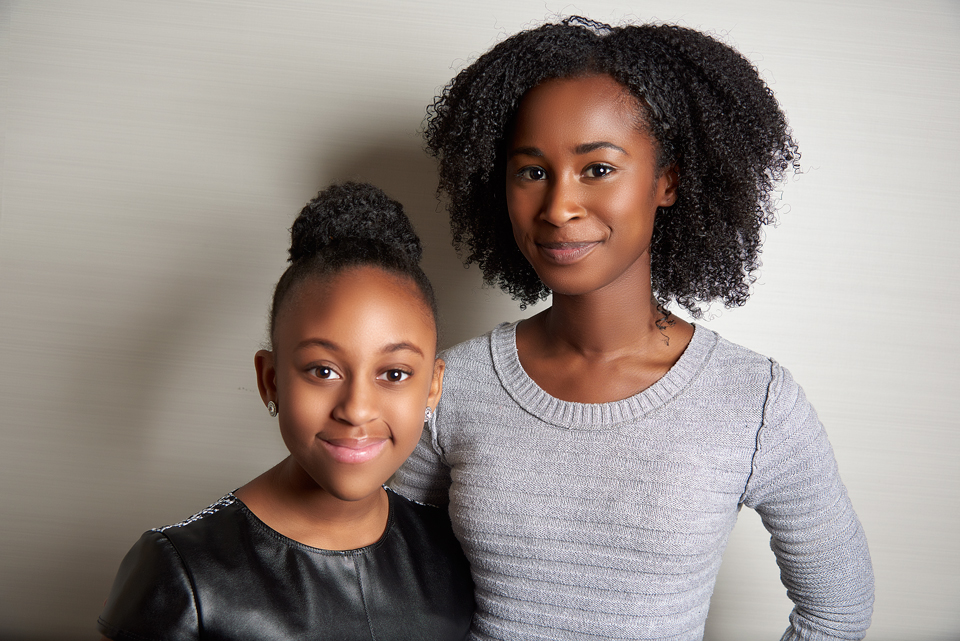While the authenticity in depiction of armed conflict and child soldiers is met with high praise with films such as Ezra, Johnny Mad Dog, War Witch and Beasts of No Nation, the socio-psychological effects of former child soldiers are rarely explored, especially from the female narrative.
Canadian director, writer and actress, Keeya King (Anatomy of Assistance, Grandpa Was Here, Brown Girl in the Ring), went on a search to find stories of child soldiers after learning of a very close family friend who escaped from being a child soldier in Uganda by living in the bushes, and later immigrated to Canada.
What she found was that former child soldiers were largely rejected and stigmatized by their family and community and faced a long battle of rehabilitation and reintegration into society. King felt it was her moral duty to spread awareness of their hardships through the power of the moving image.

“It’s always about young boys who are running around with guns, but there’s a whole other world when you’re a woman and you’re faced with war.”
“No one was talking about this and I thought it was so insane that no one was talking about this from the female perspective, you know?” says King. “It’s always about young boys who are running around with guns, but there’s a whole other world when you’re a woman and you’re faced with war.”
King’s MUNA made its world debut as one of 10 short films screened at this year’s Toronto Black Film Festival in February.
“I feel like the Toronto Black Film Festival is such an amazing space and environment for people of colour … I’m so happy and honoured to be a part of it, and have the film be a part of it.”
Set in Sierra Leone during the civil war, the film is about a young woman named Muna, who is on the path to mend her life after being a child soldier. She dedicates her time to helping other victims at a rehabilitation centre. While working her night shift, she recognizes a new patient who provokes horrific memories of where her nightmare all began.
The story of Muna, who is played by Toronto actress, Mouna Traoré, intensely unfolds as she comes to grips with her past. The complexity of her emotions is apparent on her face as viewers have a window of only 13 minutes to experience the haunting psychological pain of a former girl soldier, leaving them to use their own imagination beyond the film.
Muna is one such figurative character rooted in the realities of child soldiers worldwide.
“I pulled stuff from post-traumatic stress disorder, I pulled stuff from not being able to reconnect to a community,” says King. “I pulled situations from living amongst your attackers after the war is over … and I also pulled from having physical scars on your body from the war,” she adds.
Sierra Leone’s brutal 11-year civil war from 1991 to 2002 saw tens of thousands of civilians killed and nearly 75 per cent of its population displaced. Thousands of children were abducted from their homes by rebel groups and raped, forced to take up arms and kill and maim innocent civilians. Of those children, 30 per cent are estimated to have been young girls between the ages of eight and 18.
It begs the questions, what becomes of the girl soldier who was robbed of her childhood innocence? Whose toy dolls were swapped for an AK-47 rifle she dragged through bloodstained streets because it was too heavy for her to cradle? Who was forced to kill members of her family in fear of being killed herself? Who harbours feelings of hatred towards her child who was born of rape?
Can a young woman like Muna forgive her captor years after the war is over? And, can her captor redeem their self for all the evil they have done?

“I can’t imagine what it’s been like for that girl herself and what she’s gone through.”
For 11-year-old actress, Allison Augustin, who plays young Muna and received a nomination for her role at the Young Artist Awards being held in Los Angeles this month, the age of innocence truly hits home.
“I learned even after shooting that this thing happened to a girl my age and I can’t imagine what it’s been like for that girl herself and what she’s gone through.”
MUNA also stars actors Mazin Elsadig as Muna’s captor, Kani, and Sedina Fiati as the rehabilitation centre nurse, both whose talents, along with Traoré and Augustin, are showcased quite powerfully in the film.
With MUNA set to make a film festival run in the months to come, King hopes that with each screening, it will incite viewers to do more research, speak out and be more aware of what’s happening in the world.
“I really wanted to make this film to raise awareness about past and present day issues regarding young women who are at the mercy of war in their respective countries and tell them that we see you,” King explains. “We know that you’re going through things and you’re not ignored.”
Photos © Isa Ransome & Urbanology Magazine (Still images from film supplied by filmmaker)




Comments are closed.